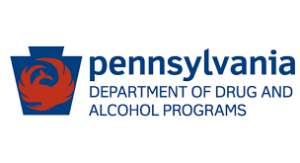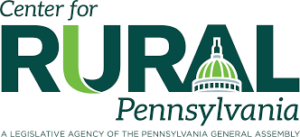PA Health Policy Update for January 27
The following is an update of selected state health policy developments in Pennsylvania from January 21-27. (Some of the language used below is taken directly from state documents.)
 General Assembly
General Assembly
- The Legislative Budget and Finance Committee (LBFC) met this week and approved the release of a report entitled “Prescription Drug Pricing Under the Medical Assistance Managed Care Program.” Act 120 of 2020 directed LBFC to conduct a study analyzing prescription drug pricing in the Medical Assistance managed care program; review reimbursement practices by PBMs (pharmacy benefit managers) to pharmacies and to PBMs by MCOs; investigate and compare reimbursement rates by PBMs to independent pharmacies and to chain pharmacies; and study state laws and best practices adopted by other states regarding PBMs and pharmacy reimbursement. Find the report here.
- Although the House has not adopted a rules package or formally established standing committees for the 2023-2024 legislation session, the Republican caucus announced its selections for committee chairs this week. Representatives Kathy Rapp and Tina Pickett will remain Republican chairs of the Health Committee and the Insurance Committee, respectively, while Doyle Heffley will be the new Republican chair of the Human Services Committee. In addition, Representative Carl Metzger will be the Republican chair of the Professional Licensure Committee, Steven Mentzer will be the Republican chair of the Aging & Older Adult Services Committee, and Linda Schlegel Culver will be the Republican chair of the Children & Youth Committee. Find the full list of Republican committee chairs here.
- The state House Democratic Policy Committee convened in Pittsburgh for an informational hearing examining the health care staffing crisis. Find the meeting agenda and testimony offered during the hearing here.
Department of Human Services
- The Department of Human Services’ (DHS) Office of Mental Health and Substance Abuse Services (OMHSAS) has issued a bulletin providing guidance for the implementation of Act 65 of 2020, which governs who can provide consent for voluntary mental health treatment of minors who are 14 years of age and less than 18 years of age in both inpatient and outpatient settings. Act 65 also addresses which individuals may grant consent for the release of a minor’s medical records. Find that bulletin here.
- DHS has issued a Medical Assistance Bulletin informing providers that it has increased fees for certain ambulance transportation services on the Medical Assistance fee schedule effective with dates of service on or after January 1, 2023. Find that bulletin here.
- DHS has published final notice of the assessment amount, the assessment methodology, and the estimated aggregate impact on nursing facilities that will be subject to the Nursing Facility Assessment Program for FY 2023. Learn more about which types of facilities to which the assessment applies and how much their 2023 assessment will be from this Pennsylvania Bulletin notice.
- At the January 26 meeting of the Medical Assistance Advisory Committee, DHS’s Office of Long-Term Living offered a presentation on the efforts of the managed care plans that serve Community HealthChoices members to redetermine the eligibility of their current participants in the wake of the upcoming end of continuous Medicaid eligibility and vaccination rates among Community HealthChoices participants. Find that presentation here.
- DHS has updated its physical health managed care enrollment report.
 Department of Health
Department of Health
Pennsylvania’s Executive Board has approved a reorganization of the Department of Health. Find an organizational chart that reflects this reorganization in this Pennsylvania Bulletin notice.
COVID-19: By the Numbers
- The number of new COVID-19 cases reported daily in Pennsylvania held steady over the past week, remaining higher than prior to Thanksgiving, and the number of new daily deaths rose more than 50 percent over the past week after a decline of 50 percent the week before.
- According to the Department of Health, the number of Pennsylvanians hospitalized with COVID-19 declined seven percent last week after a 14 percent decline the previous week; the number on a ventilator because of the virus remained steady; and the number in hospital ICUs fell 15 percent after a six percent decline the week before.
- The CDC reports a slight decrease in the seven-day average of new hospital admissions in Pennsylvania because of COVID-19 over the past week.
- As of January 25, four Pennsylvania counties are experiencing a moderate rate of community transmission of COVID-19; 15 counties are experiencing a substantial rate of community transmission; and the remaining 48 counties are experiencing high rates of community transmission.
Stakeholder Events
Department of Health – Pennsylvania Achieving Better Care by Monitoring All Prescriptions Board – January 31
The Department of Health’s Pennsylvania Achieving Better Care by Monitoring All Prescriptions Board will meet virtually on Tuesday, January 31 at 9:30. For more information about the board and how to join the meeting, see this Pennsylvania Bulletin notice.
Medical Assistance Advisory Committee – Managed Long-Term Services and Supports Subcommittee – February 1
The managed long-term services and supports subcommittee of DHS’s Medical Assistance Advisory Committee will hold a public meeting on Wednesday, February 1 at 10:00. Interested parties may attend in person or virtually. Go here for further information about the meeting, its location, and how to participate virtually.
Department of Health – Organ Donation Advisory Committee Meeting – February 2
The Department of Health’s Organ Donation Advisory Committee will hold a public meeting on Thursday, February 2 at 10:00. The purpose of the meeting is to review progress in the area of organ and tissue donation in Pennsylvania, recommend education and awareness activities, recommend priorities in expenditures from the Organ and Tissue Donation Awareness Fund, and advise the Department of Health on matters involving administration of that fund. Interested parties may attend in person or virtually. For further information about the meeting and how to attend, see this Pennsylvania Bulletin notice.
Department of Health – Traumatic Brain Injury Advisory Board Meeting – February 3
The Department of Health’s Traumatic Brain Injury Advisory Board will hold a public meeting in Harrisburg on Friday, February 3 at 10:00. Meeting materials will be sent out before the meeting and will also be available on the board’s web and at the meeting location. For further information about the meeting and its location, see this Pennsylvania Bulletin notice.
Department of Drug and Alcohol Programs – Adolescent ASAM Criteria – March 9
The Department of Drug and Alcohol Programs will offer a training program for adolescent service providers on two dates: March 9 and May 16, both at 8:30. This training on adolescent ASAM criteria, to be delivered virtually, is designed for participants who already understand the foundational aspects of the ASAM criteria. The purpose of this training is to explore and discuss the adolescent-specific aspects of the ASAM criteria and offer participants a practical focus through lecture, real-world clinical vignettes, and case studies. Continuing education credits are available. Learn more about the program, including requirements for participation and how to join, from this Department of Drug and Alcohol Programs notice. Please note that the March 9 and May 16 sessions will be identical.
Department of Drug and Alcohol Programs – Adolescent ASAM Criteria – May 16
The Department of Drug and Alcohol Programs is offering training on adolescent ASAM criteria, to be delivered virtually, for participants who already understand the foundational aspects of the ASAM criteria. The purpose of this training is to explore and discuss the adolescent-specific aspects of the ASAM criteria and offer participants a practical focus through lecture, real-world clinical vignettes, and case studies. The program will be held on May 16 at 8:30. Continuing education credits are available. Learn more about the program, including requirements for participation and how to join, from this Department of Drug and Alcohol Programs notice. Please note that this program is identical to one offered on March 9.
 Shapiro-Davis Transition
Shapiro-Davis Transition Centers for Medicare & Medicaid Services
Centers for Medicare & Medicaid Services Department of Human Services
Department of Human Services Department of Drug and Alcohol Programs
Department of Drug and Alcohol Programs Department of Drug and Alcohol Programs
Department of Drug and Alcohol Programs 2022 Election Update
2022 Election Update Stakeholder Events
Stakeholder Events General Assembly
General Assembly Pennsylvania Health Care Cost Containment Council (PHC4)
Pennsylvania Health Care Cost Containment Council (PHC4) Department of Health
Department of Health General Assembly
General Assembly General Assembly
General Assembly Department of State
Department of State General Assembly
General Assembly